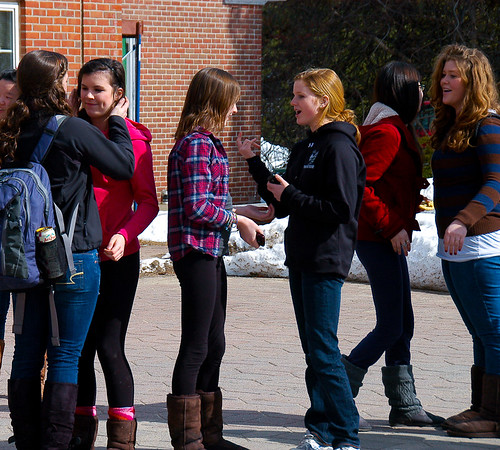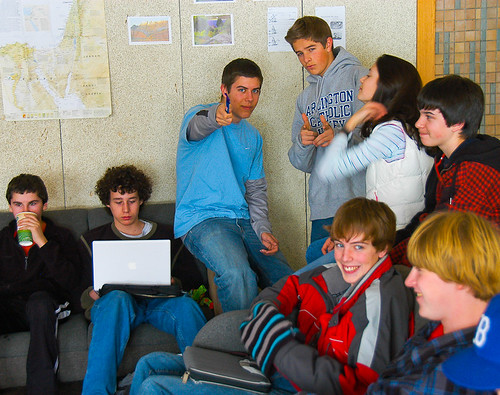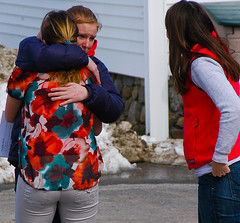Students departed Tuesday for a nineteen day vacation called "Spring Break" despite the fact that they return on the first full day of spring.

Their emotional parting reflects the bonds that knit the community. Of course, almost thirty students will spend spring term at Proctor in Spain, on Mountain Classroom and in Costa Rica, making these farewells more poignant.

The scene outside the dining room is nothing new; it is repeated at the end of each term.

An hour after the buses roll, the faculty convened in the stone chapel for the end-of-term meeting. Proctor's culture is shaped--in part--by the open nature of these meetings; everyone is welcome to speak, or offer topics for consideration. Tuesday's discussion included a fascinating exploration of the challenges posed by adolescent boys. Some teachers observe that many boys do not perform as well as girls (a notion consistent with adolescent brain research,) and we know that more boys run afoul of school structures than girls.

The diversity of faculty perspectives on the matter is remarkable. Are we witnessing a maturation phenomenon? (With the growth of the size of our ninth and tenth grades, we've become a much younger community in recent years.) Is there something unique about our population, or are boys more challenging everywhere? The number of variables makes this conversation complex!

To what extent does Proctor--by the nature of its distinct ethos--attract personality types? Part of that ethos is academic support that enables kids to develop executive skills (organization, future planning, self-discipline, etc.) through direct application to school work.

Another variable: to what extent are we witnessing something new? We see boys--much more than girls--playing Call Of Duty and other shoot-em-up online games. While that is certainly new, many of us recall bemoaning male distractibility decades ago. Do boys have time for quiet reflection? One veteran teacher with extensive experience at other boarding schools observed that--to visiting families--Proctor must appear to offer a relatively safe environment, with challenge balanced by support and compassion.

Tuesday's discussion was the latest exploration of an enduring topic. Given the number and variety of tangental topics and observations, this process is unlikely to yield a single response. Rather, we elevate our consciousness to gender issues while continuing to appreciate the complexity of life with emerging adolescents.









































